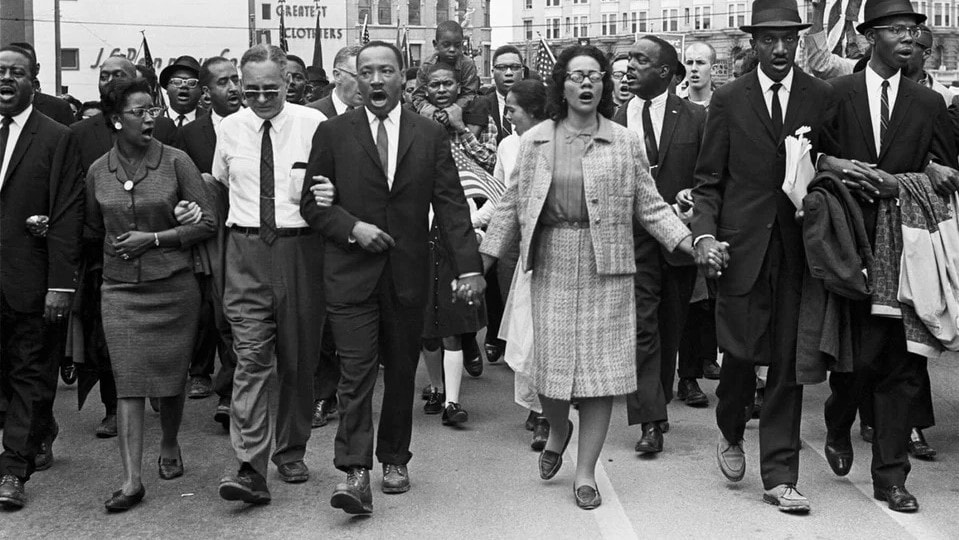|
President Biden’s deteriorating mental condition seems to have affected his judgment when he appointed Ketanji Brown Jackson to the Supreme Court. Ketanji Jackson is a “far-left political activist" with a collectivist or socialist philosophy. Her opinions are anathema to middle America. During evaluations by the Judiciary Committee and the Senate, Jackson was unable to conceal her radical political philosophy. But her Court appointment was approved. In his presidential campaign, Joe Biden promised that, if elected, he would appoint the first Black female to the Supreme Court. He made no mention of experience, political philosophy, or prior legal decisions. His only criteria were race and gender. Appointing Ketanji Jackson to the Supreme Court was the only campaign promise that Biden fulfilled. President Biden justified Jackson’s appointment with this language: "For too long our government, our courts haven't looked like America," The phrase “doesn’t look like America” actually means our government and our courts lack ‘diversity.’ Our Founding Fathers would never have imagined that appointments to the Supreme Court would be made simply to achieve diversity. During her Senate Judiciary Committee hearing, Ketanji Brown Jackson either didn’t respond to questions or responded with vague generalities. Committee Republicans tried in vain to determine the judicial philosophy Jackson would bring to the highest court in the land. But Jackson described herself as ‘neutral’; with no philosophy only a ‘methodology.’ But it is unlikely that Jackson could have had such a lengthy legal career, including judgeships, without developing legal preferences. The Declaration of Independence includes the affirmation that all men “are endowed by their Creator with certain unalienable Rights.” These unalienable or natural rights - life, liberty, and the pursuit of happiness - are the underpinnings of our way of life. But when Ketanji Brown Jackson was asked her opinion of natural rights, she responded: "I do not hold a position on whether individuals possess natural rights." Are we to believe that a former judge, with years of experience, hasn’t decided if individuals have natural rights? She claims she can’t define the word ‘woman’ so we wonder if she understands the difference between natural rights and legal rights. The Supreme Court is the guardian and arbiter of the Constitution and the cases its justices must decide involve interpretations of that document. But there is a growing sentiment with certain Leftists that the present Constitution doesn’t meet the needs of modern society. It is widely believed that Ketanji Brown Jackson shares the opinion that the outdated Constitution should be replaced with a “Living Constitution.” But during her hearing, Jackson denied any involvement with the “Living Constitution” movement. Ketanji Jackson’s evasiveness during her Committee hearing prevented an adequate evaluation of her competence. But excerpts from her testimony indicate that ‘Wokeness’ might affect Ketanji Jackson’s decisions on cases involving free speech, religious liberty, and other cultural issues. Critical race theory and other racist issues might also impact Jackson’s thinking. Ketanji Jackson’s Supreme Court appointment is concerning because, in close cases, one vote could produce a different outcome. The unwise Supreme Court appointment of Ketanji Jackson comes at a bad time. Our country is at a pivotal moment in its history. We desperately need competent leadership but the failed Biden administration can’t provide it.
0 Comments
Some of you may wonder about the caption for this article. You’re probably thinking “Doesn’t this writer know the civil rights movement ended years ago.” But I maintain that a version of that movement, albeit scaled down, remains to this day . We still hear Black accusations of White racism and Black demands for equal rights. The 1960s Student Nonviolent Coordinating Committee (SNCC) has been replaced by Black Lives Matter (BLM). And White privilege has become this generation’s most popular form of racism. The establishment wants us to think the civil rights movement only lasted 14 months. Their arbitrary beginning date is 1954 with the Brown versus Board of Education decision that ended segregated schools. The ending date is designated as 1968 with the Civil Rights Act of 1968. Essentially the civil rights movement is a collection of civil disobedience events, e.g. Rosa Parks and the Montgomery bus boycott, the march on Washington, freedom riders, and the Selma to Montgomery march. These civil disobedience events have become legends as a result of overblown media reports. Journalists are not impartial. They advocate certain agendas . Their advocacy is especially evident in their reports on the civil rights movement. Not only is the movement always reported favorably but its detrimental aspects are ignored. Today’s journalists were not around in the 1950s and 1960s, during the heyday of the civil rights movement. Their opinions of that earlier time are based on ‘handed down’ reports by previous journalists. I tend to be skeptical of versions of current incidents that rely on interpretations of past news reports As an analogy, consider the ‘telephone game’ often played at parties. Someone whispers a phrase to the person next to them and it is whispered from person to person around the room. The version of the phrase whispered to the last person is always significantly different from the original phrase. Civil disobedience was the primary strategy of the civil rights movement. But in the beginning, protests were more disciplined and rarely disruptive. However activists felt that conditions for Blacks weren’t being improved fast enough. So they stepped up their protests to the point of disrupting society. When civil disobedience began to disrupt society, public support began to wane. The civil rights movement has been called ‘Second Reconstruction.’ This comparison is plausible if first Reconstruction is viewed simply as granting equal rights to freed slaves. While that explanation may be satisfying , it ignores Union attempts to make the South a bastion of the recently created Republican party. Obstructions to reordering Southern society eventually discouraged the Union. It relinquished control of the South and withdrew its troops. Forsaken by their Union saviors, destitute slaves sought out their former masters and negotiated a working arrangement involving shared land and shared crops. Slavery and racism have so continuously and thoroughly dominated our nation’s dialogue that it shouldn’t be surprising that an academic scholar has created a diagnosis of ‘Post Traumatic Slave Syndrome (PTSS).” Essentially PTSS posits that the ‘multigenerational’ history of slavery and related injustices is causing pain and suffering to contemporary Blacks who have never been slaves. Similarly, racism is not so much individual incidents but a system-wide imperceptible phenomenon. Throughout the years, characterizations of racism have been continuously updated with new terminology. The term “racial bias” has been changed into “subtle manifestations of racial bias.” This change allows any interaction to be interpreted as a racist episode. A similar accusation is “unconscious bias” which refers to biases we may not be aware of. And the derogatory designation ‘White supremacy’ essentially implies racism. One of the Black community’s hypothesis is the ‘Myth of Meritocracy’ which maintains that success is more a matter of luck rather than hard work. This ‘Myth’ holds that in a society permeated with ‘institutional racism’, Blacks cannot succeed without some form of government intervention. Meritocracy implies that hard work leads to wealth and security but Blacks insist that no amount of hard work can overcome White privilege. This generation includes civil rights under the collective term ‘social justice.’ And although social justice is aggressively pursued, its activists don’t exhibit the same zeal as civil rights activists in the 1960s. This generation seems to feel that advocating social justice is more an obligation than a concern for the betterment of society. |
AuthorGail Jarvis is a Georgia-based free-lance writer. He attended the University of Alabama and has a degree from Birmingham Southern College. His writing is influenced by years of witnessing how versions of news and history were distorted for political reasons. Mr. Jarvis is a member of the Society of Independent Southern Historians and his articles have appeared on various websites, magazines, and publications for several organizations. He lives in Coastal Georgia. Archives
June 2023
|


